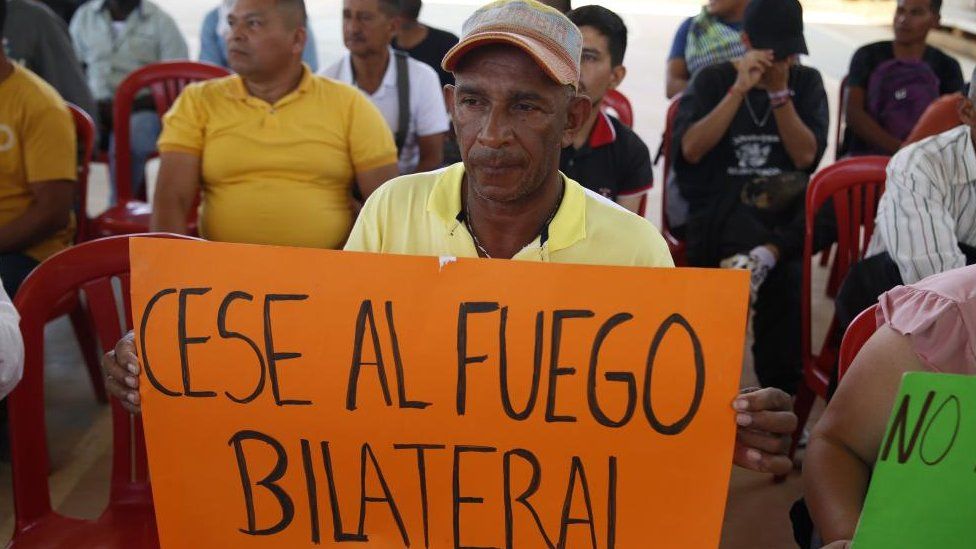-

-
-
Loading

Loading

The Colombian government and the left-wing rebel group EMC-Farc have reached an agreement to resume peace talks and establish a 10-month ceasefire. The EMC-Farc is a faction of the Revolutionary Armed Forces of Colombia (Farc), which originated in the 1960s as the armed branch of the Communist Party. Unlike the Farc leadership, who signed a peace agreement in 2016 and laid down their weapons, the EMC-Farc members refused to do so. The ceasefire will begin on October 8th, and the first round of negotiations will be held in Tibú, a town in northeastern Colombia near the Venezuelan border. President Gustavo Petro, himself a former Marxist rebel, is determined to break the country's long history of violence and achieve lasting peace. The talks, attended by representatives from the European Union, United Nations, and Organisation of American States, began on Sunday in the southwestern Cauca region. In recent years, the EMC-Farc has gained strength after the peace accord between the Colombian government and the Farc, occupying territories previously held by the main group. The government suspects the EMC-Farc of being involved in illicit activities like cocaine trafficking, illegal mining, and attacks on Colombian troops. The ceasefire that was previously in place was suspended in May after the group killed four indigenous boys who had been forcibly recruited but later fled. It is estimated that the EMC-Farc currently has around 3,000 members, with its strongholds being in the provinces of Caquetá, Guaviare, Meta, and Putumayo.